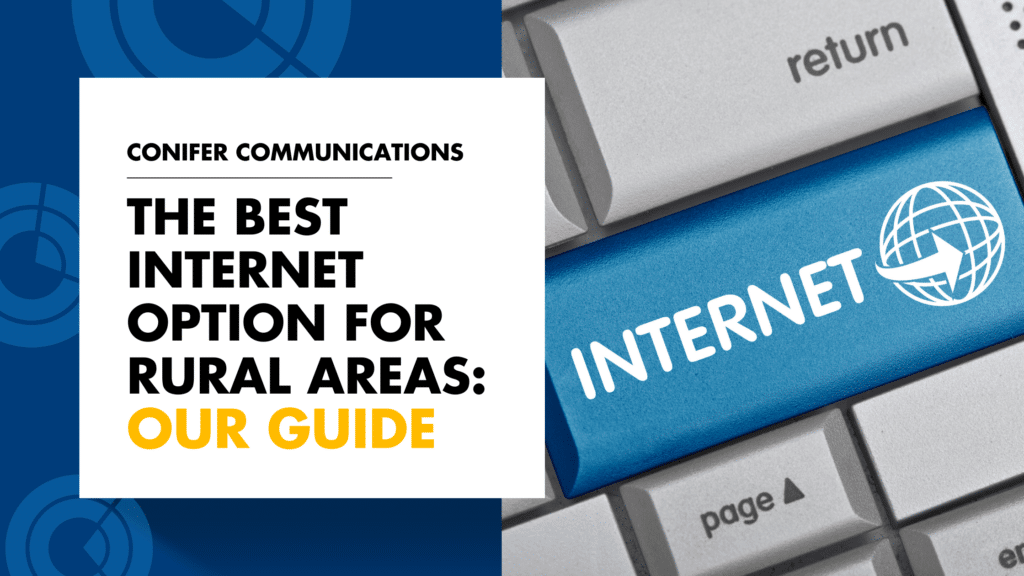
In rural areas, accessing the Internet can be a challenge. Many rural areas lack access to reliable and high-speed Internet services. However, there are two options for Internet services that rural areas can choose from: fixed wireless Internet and satellite Internet.
Fixed Wireless Internet
Fixed wireless Internet is a broadband internet service delivered using radio waves instead of cables. This type of Internet service requires a fixed antenna, usually mounted on a tower or a building.
This antenna then communicates with a nearby wireless Internet service provider (WISP) tower connected to the Internet via fiber-optic cables. The signal is then transmitted wirelessly to the customer’s home or business using line of sight.
Benefits of Fixed Wireless Internet
- Reliable Service: Fixed wireless Internet is generally the best internet option for rural areas compared to satellite Internet. This is because fixed wireless Internet uses a direct line of sight signal, making it less likely to be affected by weather conditions or other interference.
- High-Speed Internet: Fixed wireless Internet uses a direct line of sight signal, which means that it can deliver high-speed internet services even in rural areas where other Internet services are unavailable.
- Cost-Effective: Fixed wireless Internet is generally more cost-effective than satellite, cable, or fiber. This is because the equipment required for fixed wireless Internet is less expensive than the infrastructure needed for satellite, cable, or fiber when installed in a rural area.
- No Data Caps: Fixed wireless Internet providers do not typically impose data caps on their services. Customers can use as much data as they want without any additional charges.
- Customer Service: Fixed wireless companies are often local companies with local tech support. If you need help, you will be able to reach a local person and get support by phone or schedule a service call.
Drawbacks of Fixed Wireless Internet
- Limited Coverage Area: Fixed wireless Internet is not available everywhere. It requires a direct line of sight between the antenna and the tower, so it may not be available in areas with obstacles like hills, trees, or buildings.
- Susceptible to Interference: Fixed wireless Internet can be affected by interference from other electronic devices or radio signals. This can result in slower speeds or dropped connections.
Satellite Internet
Satellite Internet is a service that uses a satellite in space to transmit and receive signals. This type of Internet service requires a satellite dish, which is usually mounted on the roof of a house or a building. The signal is transmitted from the satellite to the customer’s dish and then to their modem.
Benefits of Satellite Internet
- Wide Coverage Area: Satellite Internet can cover a wide area, making it an ideal option for rural areas where other types of Internet services are not available.
- Easy Set-Up: Satellite Internet is relatively easy to set up. Customers only need to install a satellite dish and a modem to use the service.
- No Need for Cables: Satellite Internet does not require any cables, which means that it can be used in areas where other Internet services are unavailable.
- Availability: Satellite Internet is available almost everywhere in the world that can see the southern horizon, which makes it an option for people who live in remote areas.
Drawbacks of Satellite Internet
- High Latency: Satellite Internet experiences a long delay between sending a request and receiving a response, known as high latency. This delay can be problematic for users who require real-time applications such as video conferencing, causing frustration.
- Weather-Dependent: Satellite Internet can be affected by weather conditions like heavy rain, snow, or strong winds, which can disrupt the signal.
- Data Caps: Satellite Internet providers typically impose data caps on their services, meaning customers can only use a certain amount of monthly data. If they exceed this limit, they will be charged additional fees.
- Customer Service: National satellite companies do not have local customer service and may only have some support by email. This can be a very frustrating way to ask for help when your Internet is down, where you need to find a way to send an email, and then you have no timeline or way to know when you might get some instructions to try and fix the issue yourself.
Conclusion
Both fixed wireless and satellite Internet have advantages and disadvantages. However, when choosing the best Internet option for rural areas, fixed wireless Internet is generally the better choice.
This is because fixed wireless Internet is more reliable, delivers higher speeds, and is more cost-effective than satellite internet. Furthermore, fixed wireless Internet providers typically do not impose data caps on their services, meaning customers can use as much data as they want without additional charges. And there is a lot of value in reaching a human when you need support.
Choose the best Internet option for rural areas when you pick Conifer Communications as your service provider. We offer reliable and high-speed fixed wireless Internet services with no data caps, making it the perfect solution for rural areas. Contact us today to learn more about our services and how we can help you stay connected!


